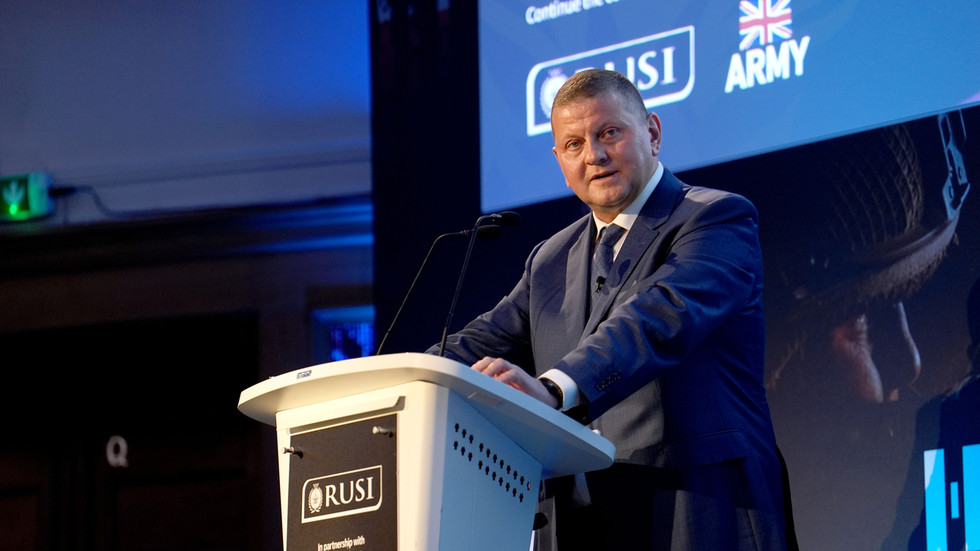Fans of Indian music are, no doubt, aware of that and may very well have caught bansuri – Indian bamboo flute – master Hariprasad Chaurasia on a couple of forays over here.
By BARRY DAVIS NOVEMBER 24, 2024 00:38 RAKESH CHAURASIA, a polished bansuri – Indian bamboo flute – player will be part of the Oud Festival.
(photo credit: Sudhirparmar Photography)
RAKESH CHAURASIA, a polished bansuri – Indian bamboo flute – player will be part of the Oud Festival.
(photo credit: Sudhirparmar Photography)
The Jerusalem International Oud Festival has, of course, always primarily been about the eponymous Arabic string instrument. However, over the past quarter of a century since its founding by Jerusalem’s Confederation House, and its long-serving CEO-artistic director Effie Benaya, the programmatic purview has ebbed and flowed and flexed to incorporate various cultural baggage, genres, and styles from outside the strict confines of Arabic music.
Fans of Indian music are, no doubt, aware of that and may very well have caught bansuri – Indian bamboo flute – master Hariprasad Chaurasia on a couple of forays over here. The venerable gent is now in his mid-80s and still performing in India, and now his gifted nephew Rakesh Chaurasia – a polished bansuri player himself – is coming over here to play his part in the Oud Festival (November 21-30).
The November 25 (9 p.m.) concert is dubbed Music for Peace and Brotherhood which already signals more than a whiff of a wholesome supportive subtext to the artistic venture. Chaurasia Jr. fully confesses to harboring positive intent betwixt the sonic material. “I am not worried about what is happening [in Israel],” he informs me straight off. “Maybe my music will help to bring some peace and harmony and something good as well.”
If you have ever listened to Indian music, with its meditative spirit, seemingly effortless musicianship, and pervading sense of deep breathing and tranquility, you will surely be confident of imbibing some of that calming effect should you decide to pop along to the Jerusalem Theatre show to see and hear Chaurasia perform alongside longtime collaborator tabla player Kalinath Mishra. While the 52-year-old bansuri player’s illustrious uncle will not be in Jerusalem in person, no doubt his spirit will permeate the auditorium ambiance.
Indian music professionals
THE INDIAN way of going about things, at least those who follow the traditional path to the higher echelons of expertise, is very different from the general take on professionalism in the West. Many years ago, I was fortunate to attend a concert at the Barbican in London with iconic sitar Ravi Shankar, who was largely responsible for introducing the Western world to Indian music – together with peerless tabla player Zakir Hussain. Besides the sparkling musicianship, the concert served as a lesson in patience and focused-yet-relaxed listening.
Chaurasia comes from that avenue of thought and practice. “I am so glad and fortunate and blessed,” he notes. “It is always a learning process being with these amazing maestros on the stage.” That references not only his long apprenticeship with his Uncle Hariprasad, but also masters from very different, ostensibly disparate, areas of the musical galaxy. “Because of them we received the Grammy, and I am so proud to bring this sort of award for my country,” he declares.
That lofty industry accolade was achieved after Chaurasia joined forces with virtuoso American banjo player Bela Fleck, whose multilayered oeuvre spreads across bluegrass, jazz, classical, rock and a slew of world music genres. Similarly eclectically-minded American bassist Edgar Meyer and Hussain were also along for the ride as their As We Speak album won for Best Contemporary Instrumental Album. And a cut off the record, “Pashto,” took the award for Best Global Music Performance.
While the flutist is steeped in the millennia-old music of his country, he is not averse to dipping a nimble finger or two in other sonic pies. I wondered whether as a member of a younger crowd than his celebrated uncle and 73-year-old Hussain, Chaurasia had encountered Western influences, possibly even rock and pop, in his early formative years and whether those sounds, rhythms and dynamics had informed his evolving musical consciousness to some extent.
“I listened to all kinds of music growing up,” he says. It wasn’t just about getting a fun earful and possibly shaking a leg. As a budding musicians he considered all styles and genres as fodder for his unfolding skills and delivery. “I tried to grab onto anything I could. And then I tried to incorporate it into my Indian classical music. I like all different things. That’s why I do a lot of collaborations. I do a lot of fusion with people, not to jam but to learn from them. I am always searching and looking for new things, looking to see what else I can do.”
That helps to pique his interest, keep him on his instrumental and creative toes and, in the process, his audiences fresh. “It’s an experience, what you go through, and then you decide after doing it on stage, taking a chance, whether the people like it or not.”
Stay updated with the latest news!
Subscribe to The Jerusalem Post Newsletter
The explorative spark, however, comes from home base. And that, Chaurasia feels, has a knock-on effect. “If I like it, I will expect my audience to like it.” That, he believes, is the result of a natural ebb-and-flow vibe. “If I like it I am really with it. I am not trying to get some applause. I have learned from Hariprasad that it is always approaching it in a spiritual manner, and first making yourself happy. As you get mature, you learn what is important and what isn’t. This is like a prayer for us, sitting on the stage. I can say it is a wonderful journey.”
JAZZ, OR jazz-leaning endeavor, also comes into probing equation. The name of acclaimed jazz saxophonist Joshua Redman, for example, appears on the roster of A-lister musicians Chaurasia has sparred with over the years.
“Indian classical music is also like jazz,” he observes. That came as quite a surprise. I had not thought of the sounds that first emanated out of New Orleans in the late 19th century as anything akin to the ragas, talas, and other formats that have evolved in Indian music over the past two-and-half to three millennia.
Chaurasia cites the extemporizational factor as a common denominator.
“Jazz has harmonies and chord sequence, which we don’t have. But we have the tonic element. We have combinations of notes and how we feel with that, and where we take it. It is how far we explore, say, your raga on that evening or that day. It is like online music. We are creating music on the spot. The fingers, the hands should take whatever comes into the mind and explore it.”
That is surely easier said than done, but Chaurasia is keen to offer his Israeli audience some of that on-the-fly creativity on his third visit here.
“People have said to me why am I going to Israel at this time. I love your country. It has such a heritage and such a strong foundation. The best thing I like is the local food,” he laughs. “And the fitness, my God!” he exclaims before telling how he observed Tel Avivians walking, running, and cycling along the seafront in Tel Aviv on his last foray over here. “I also went running there. That gives me energy.”
To borrow from the jazz vernacular Rakesh Chaurasia’s chops are clearly in good shape. There is little chance of him running out of steam at the Jerusalem Theatre.
For tickets and more information: (02) 539-9360 and www.confederationhouse.org.

 By The Jerusalem Post (World News) | Created at 2024-11-23 23:40:07 | Updated at 2024-11-24 01:31:14
2 hours ago
By The Jerusalem Post (World News) | Created at 2024-11-23 23:40:07 | Updated at 2024-11-24 01:31:14
2 hours ago








